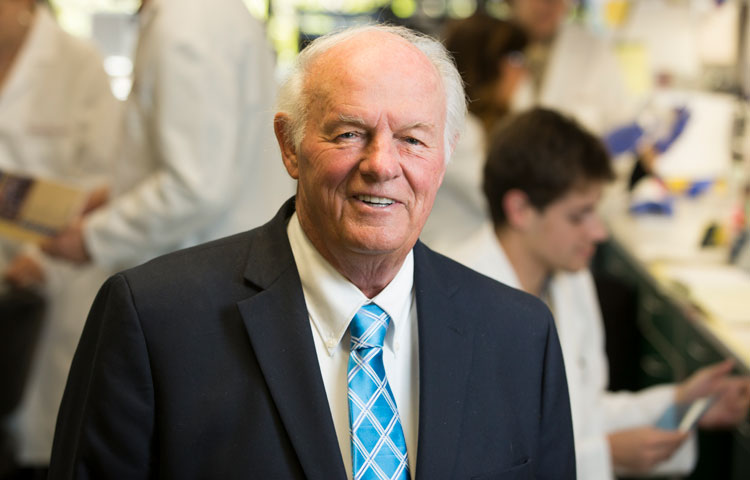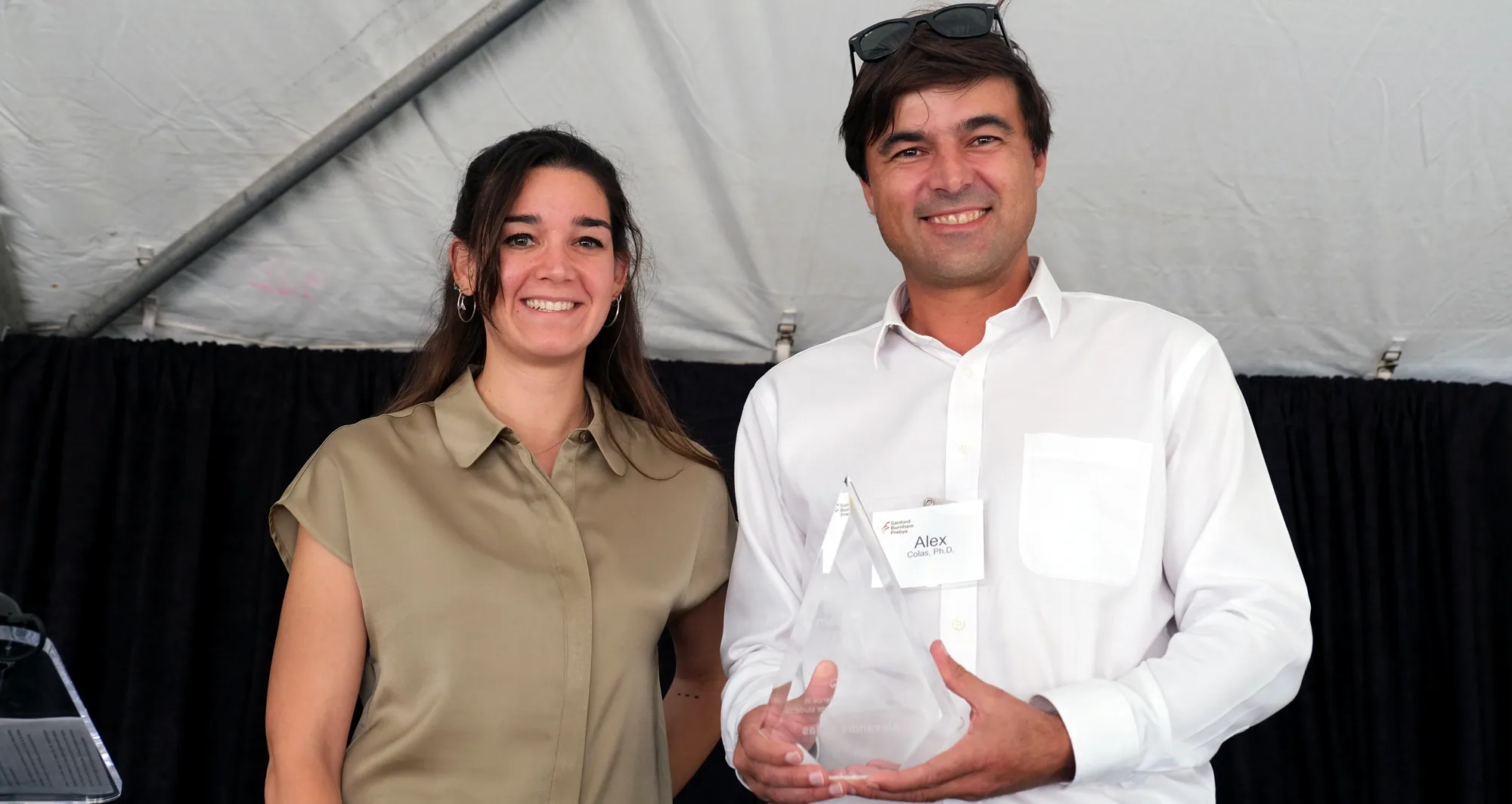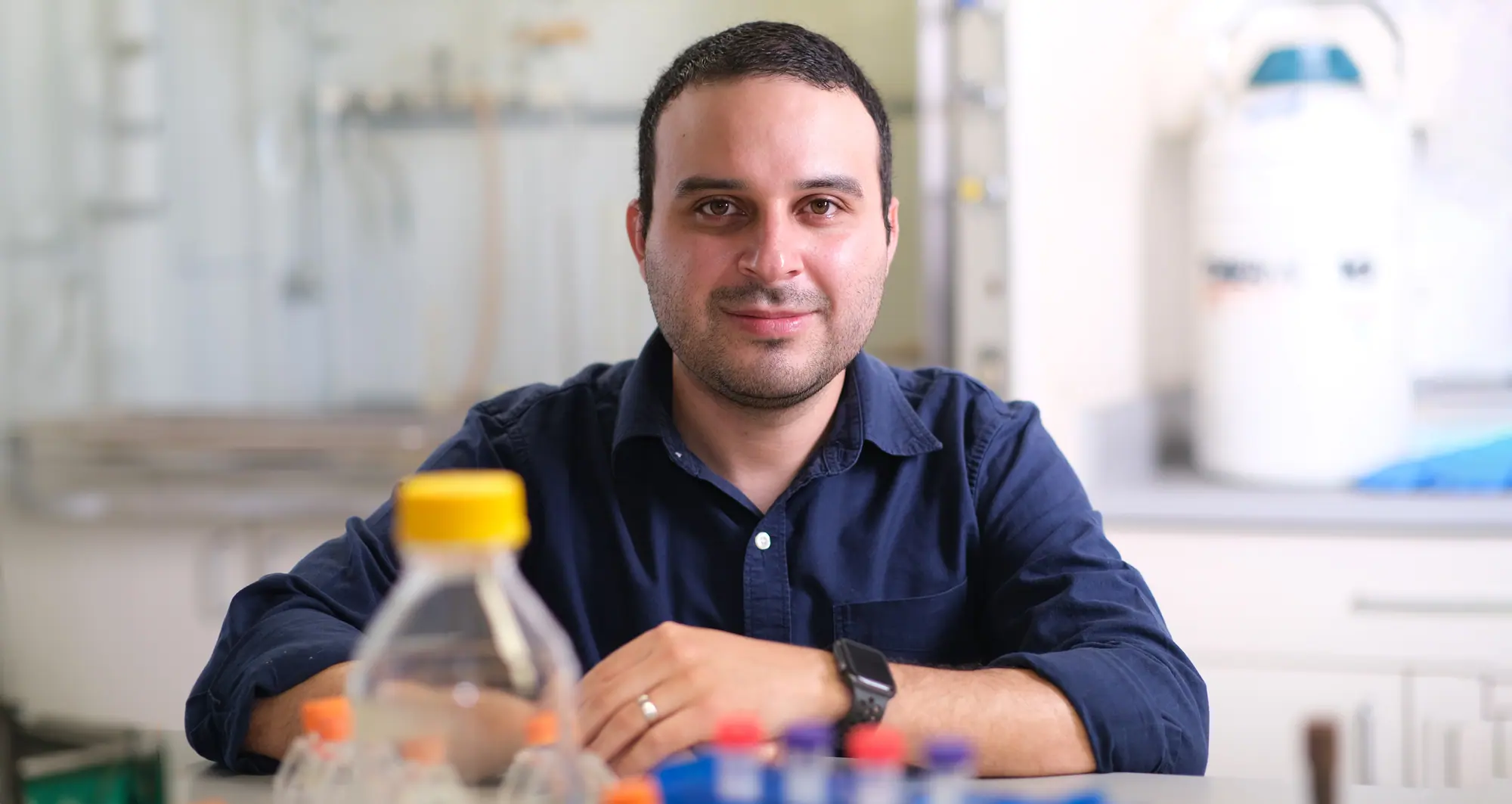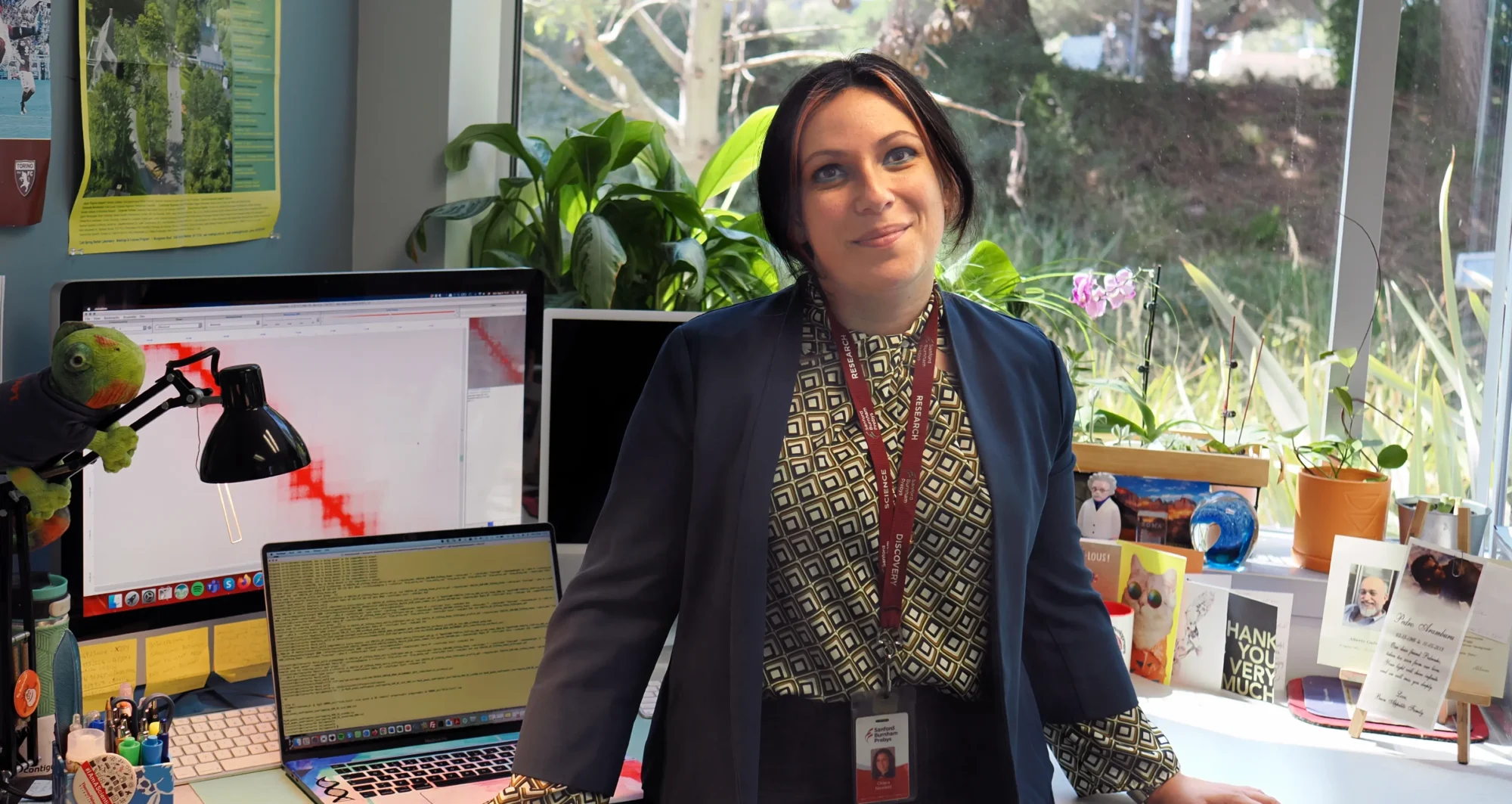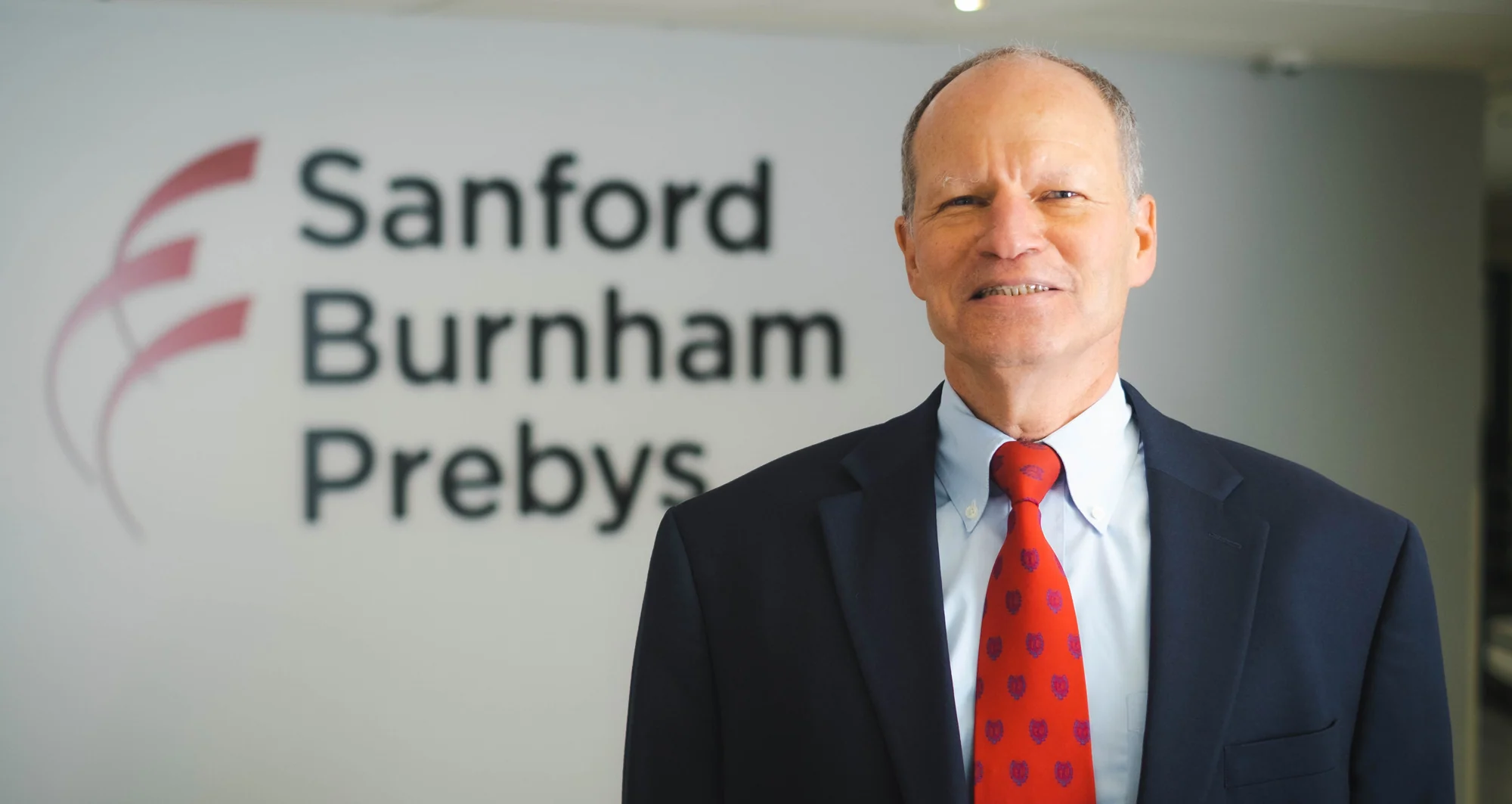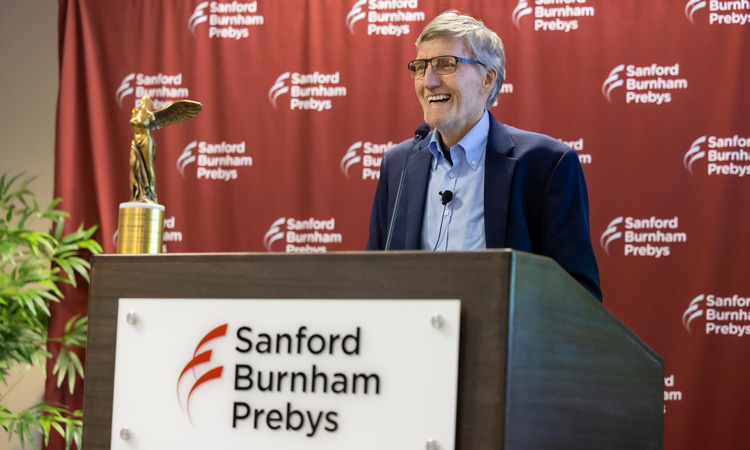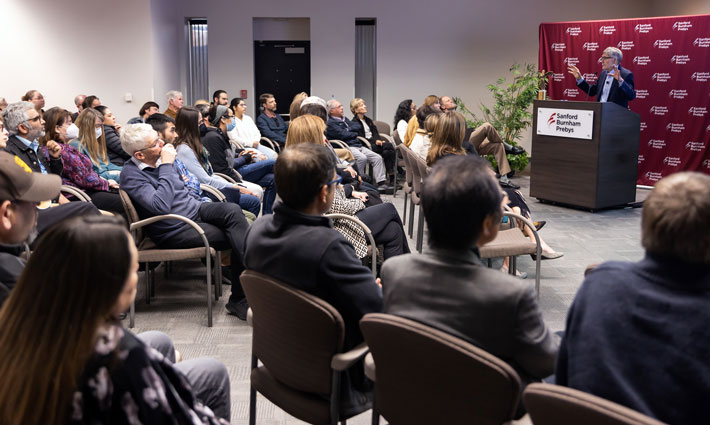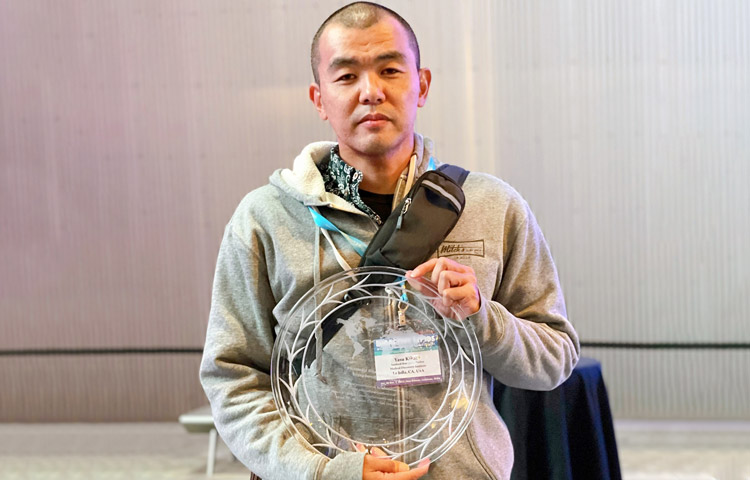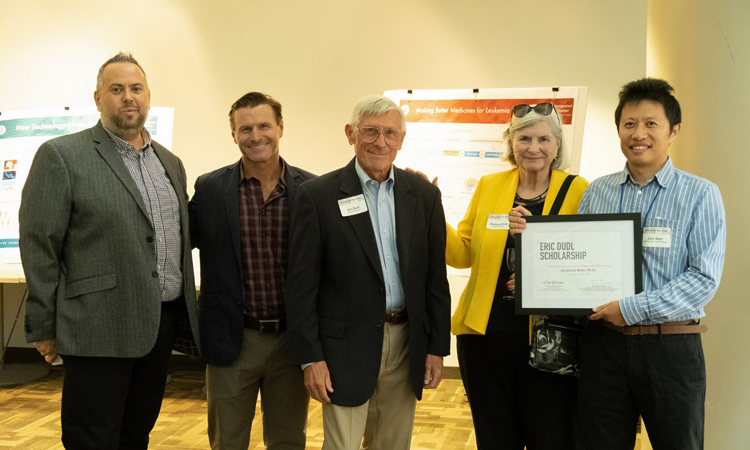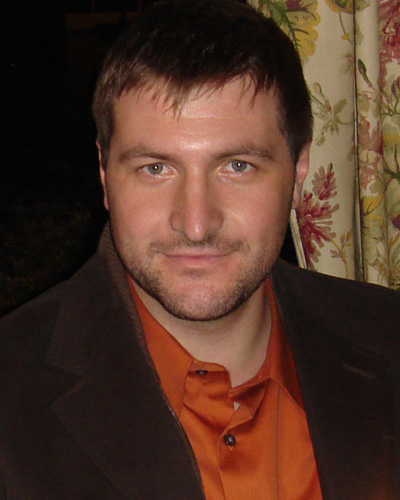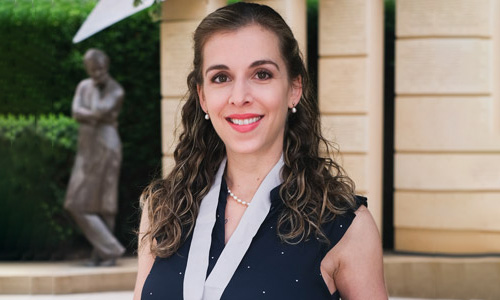This annual award was established in 2024 to recognize the contributions of postdoctoral fellows at Sanford Burnham Prebys.
Chiara Nicoletti, PhD, a postdoctoral associate at Sanford Burnham Prebys, was selected as the first recipient of the Fishman Fund Cynthia Schwartz Shenkman Research Excellence Award.
This award is one of two new honors being given during the 23rd Fishman Funds awards ceremony on September 17, marking 2024 as a special year for the Institute and the supporting donors.
The inaugural Don Barach Fishman Fund Career Award adds a fourth prize in the category of career awards focused on providing professional development opportunities for postdoctoral fellows. In addition, the Fishman Fund Cynthia Schwartz Shenkman Research Excellence Award adds a new third category of honors.
This award recognizes and rewards experienced postdoctoral fellows who have achieved a track record of research excellence. It is designed to help offset the cost of living in the region, and to benefit recipients as they prepare for the next step in their careers.
“For me, this award provides recognition of my hard work and that of my colleagues,” said Nicoletti. “It also acknowledges my mentor at Sanford Burnham Prebys and how he supports members of his laboratory.”
Nicoletti studies epigenetic patterns in skeletal muscle development and disease in the laboratory of Pier Lorenzo Puri, MD, director of the Development, Aging and Regeneration Program.
“My graduate school mentor met Lorenzo at a conference in 2016,” said Nicoletti. “Lorenzo wanted to apply what was then a very new technique called Hi-C to better understand how the MyoD protein—a key player in the establishment of muscle cell identity—is able to transform non-muscle cells into muscle.
“He wanted to study how changes in the three-dimensional organization of DNA can trigger alterations in gene expression, leading to a switch in cell identity. Few people in the world could analyze the data from these experiments at that time. And one of those people was me.”
Chiara’s accomplishments since joining Sanford Burnham Prebys and the Puri lab in 2018 include her work on dysferlinopathy, a rare form of muscular dystrophy. In collaboration with the laboratory of Jyoti K. Jaiswal, MSc, PhD, at Children’s National Research Institute in Washington, D.C., she developed an atlas mapping how the disease causes changes in the transcription of genes in skeletal muscle. This compendium follows the disease progression of dysferlinopathy at the single-cell level.
Dysferlinopathy patients suffer from progressive muscle loss in which muscle cells are replaced by fat and scar tissue. Understanding how this process takes place may accelerate research to find new drugs to improve muscle function. For her work on this project, Nicoletti was recently recognized with the Young Investigator Award by the Jain Foundation, a nonprofit foundation focused on finding a cure for dysferlinopathy.
“When you get to know people with muscular dystrophy, you immediately see that their minds are bursting with life,” reflected Nicoletti. “Someone I met recently said his dream was to bring his daughter to the altar at her wedding and have a father-daughter dance. If we can do something to improve his quality of life, imagine the ripple effects of what that would mean to his daughter, to his whole family.”
When Nicoletti completes her postdoctoral fellowship, she would like to remain in academia as an independent principal investigator.
“As a bioinformatician with experience in bench research, I hope to bring different labs together to build interdisciplinary collaborations focused on how diverse biological systems and organs interact.
“I also would like to teach as I feel it is our fundamental duty as scientists to train the next generation. I believe it is especially important to educate students and postdoctoral fellows about basic bioinformatics skills so that they are better equipped to evaluate published data and collaborate with computational biologists.”
Nicoletti also expressed a long-term goal of applying computational biology methods to advance knowledge of why patients are more or less susceptible to disease and have different responses to medications. These learnings are critical to personalizing treatment plans for individuals rather than populations.
Nicoletti is thankful for the support of the Fishman Fund Cynthia Schwartz Shenkman Research Excellence Award during the remainder of her postdoctoral training.
“The work I do is very rewarding. It feels close to the best that humanity has to offer when scientists and patients collaborate to achieve a common goal.
“I’m so grateful for this award, which serves as even more motivation for me, my mentor and collaborators. We’re each only given one life, and I’m determined to give back as much as I can to society through science.”
